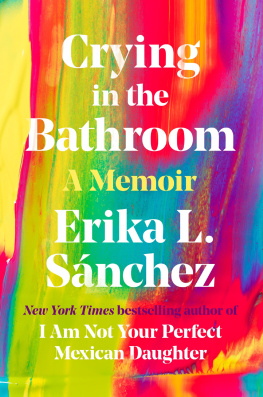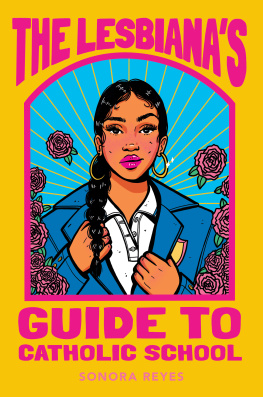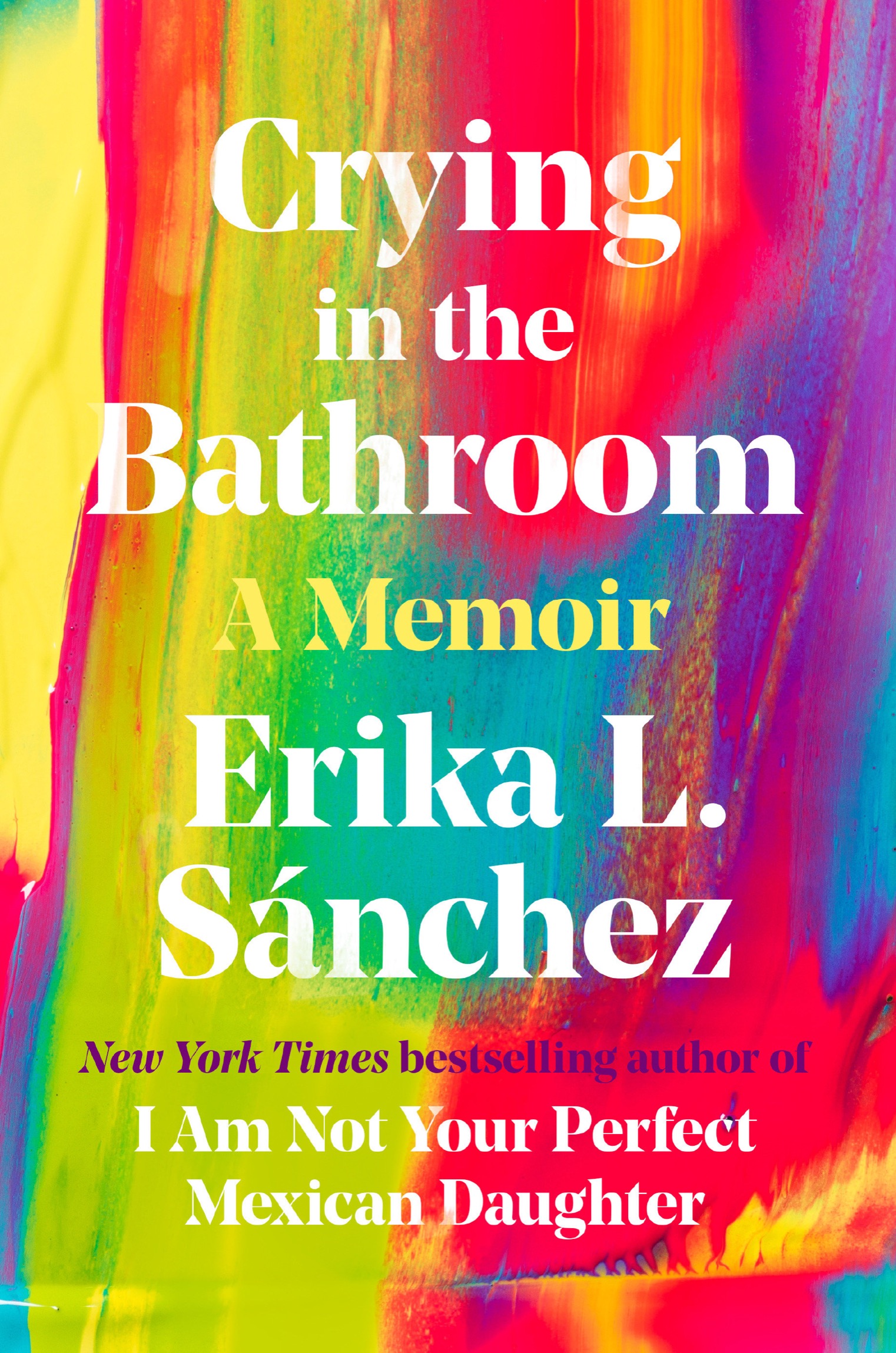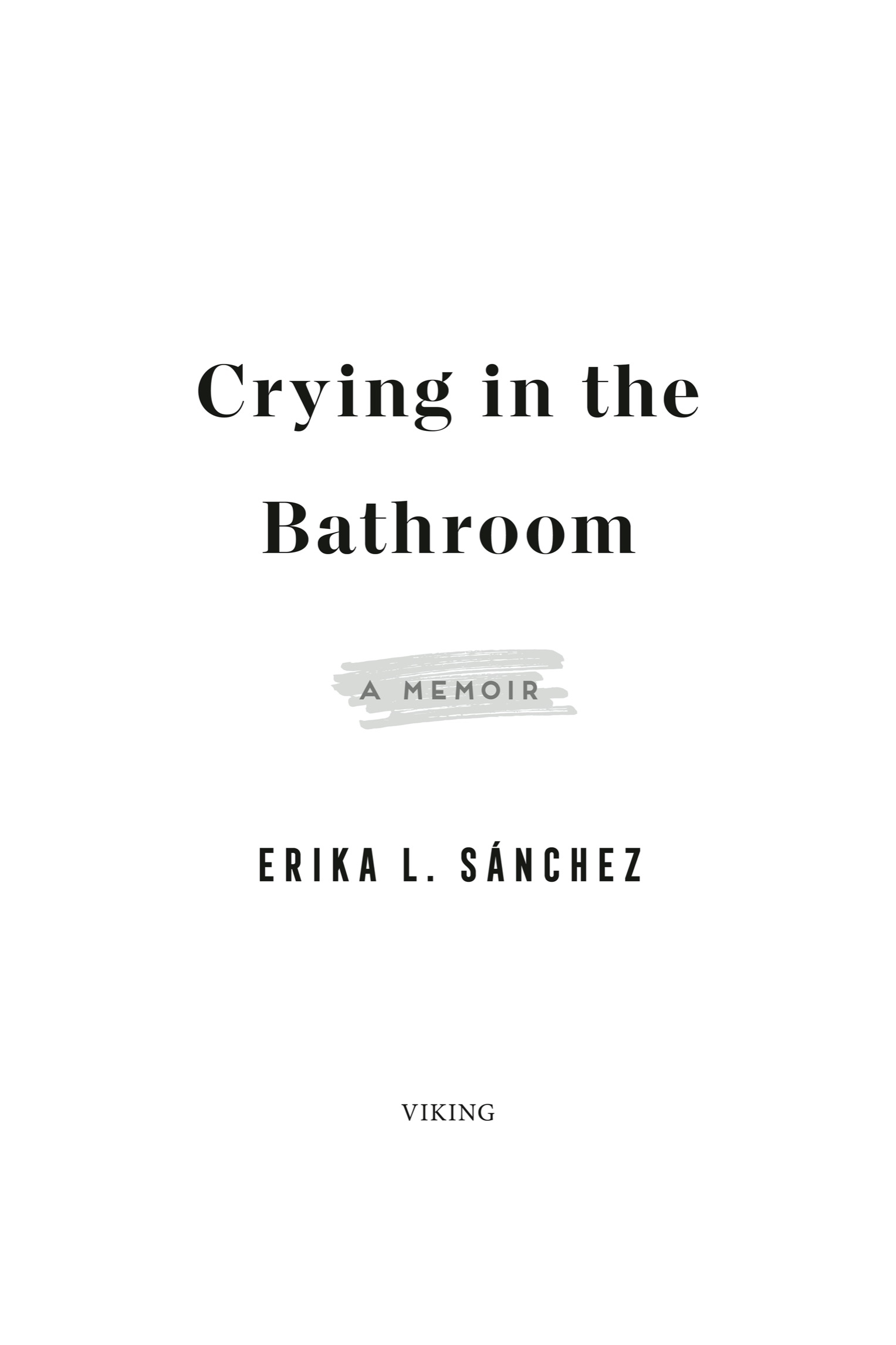ALSO BY ERIKA L. SNCHEZ
I Am Not Your Perfect Mexican Daughter
Lessons on Expulsion
VIKING
An imprint of Penguin Random House LLC
penguinrandomhouse.com
Copyright 2022 by Erika L. Snchez
Penguin Random House supports copyright. Copyright fuels creativity, encourages diverse voices, promotes free speech, and creates a vibrant culture. Thank you for buying an authorized edition of this book and for complying with copyright laws by not reproducing, scanning, or distributing any part of it in any form without permission. You are supporting writers and allowing Penguin Random House to continue to publish books for every reader.
library of congress cataloging-in-publication data
Names: Snchez, Erika L., author. Title: Crying in the bathroom : a memoir / Erika L. Snchez.
Other titles: Crying in the bathroom (Compilation)
Description: New York : Viking, [2022] | Includes bibliographical references. | Identifiers: LCCN 2021054801 (print) | LCCN 2021054802 (ebook) | ISBN 9780593296936 (hardcover) | ISBN 9780593296943 (ebook)
Subjects: LCSH: Snchez, Erika L. | Mexican American women authors21st centuryBiography. | Authors, American21st centuryBiography. | LCGFT: Autobiographies. | Essays.
Classification: LCC PS3619.A517 Z46 2022 (print) | LCC PS3619.A517 (ebook) | DDC 818/.603 [B]dc23/eng/20220208
LC record available at https://lccn.loc.gov/2021054801
LC ebook record available at https://lccn.loc.gov/2021054802
Cover design: Nayon Cho
Cover art: Yagi Studio / Getty Images
Designed by Amanda Dewey, adapted for ebook by Cora Wigen
Some names and identifying characteristics have been changed to protect the privacy of the individuals involved.
pid_prh_6.0_140424559_c0_r0
For my grandmother Clara and all the women who came before
A Wounded Deerleaps highest.
Emily Dickinson
Contents
Introduction
I grew up thinking I didnt matter, that no one cared what I had to say. The world didnt see me, a daughter of working-class Mexican immigrants, and what it did see, it considered disposable, inconsequential. I rarely found portrayals of anyone like mebookish and poor and surly and Brownin the art that I enjoyed. I searched everywhere for a model for the life I wanted, but found few. I wanted to be a writer and travel around the world, but I had no idea how I was going to make that happen. I saw only snippets of that kind of life here and there. Texts like the poetry of Sandra Cisneros were a lifeline. Here was a Mexican girl from Chicago whod become a writer and traveled alone through Europe. But texts like hers were rare finds for me, because, it seemed, I was the only one in my immediate vicinity looking for them. My teachers didnt often teach books by people of color, and I didnt have mentors or access to the internet, which was rudimentary at that time. The libraries in my community were so limited and hostile toward children that I began stealing books from the bookstore. Today, of course, I know that there were other books out there at the time that spoke to who I was, but they didnt make it into my hands very often. So when no template existed, I did what Lucille Clifton wrote about in her poem wont you celebrate with me and made it up.
When I began writing about this life that Id made up, I was plagued by a nagging voice that asked, Erika, who the fuck cares? The answer was always a memory of how deeply affirming it was for me to discover myself in the little art that declared a story like mine worthy. I wanted a place for myself in this tradition, and when I began seeking more texts of women writers while in college, I started to see where I fit in. I consider Toni Morrison the patron saint of my writing. To write with her level of honesty and clarity is my North Star. Virginia Woolf is referenced in this book again and again, both for her work and for her tragic life, which, I suppose, are one and the same. Sor Juana Ins de la Cruz became a model for my rebellion. And the list goes on and on. None of my books could have been written without these extraordinary authors. Im indebted to all the women who came before, those who paved the way as well as those whose talents were extinguished, buried, or sublimated because the world was afraid of their strength. Its thanks to their rebellions, big and small, that I get to lead this extraordinary lifethat is, a life completely of my choosing. I am myself in a world that pressures me to be otherwise, a world that doesnt love me, wasnt built for me.
Women of color are regularly praised for our resilience, but whats too often overlooked is that our resilience is a response to so many forms of violence. For us, resilience is more than a noble trait; its a lifestyle that oppression has demanded of us. Either we adapt or we die.
Even so, we need not be mere caricatures. Our stories matter, despite what the rest of society would like us to believe. So here I present to you a series of my musings, misfortunes, triumphs, disappointments, delights, and resurrections. I have pieced this all together to the best of my ability, but I also acknowledge that memory is tricky, slippery, alive, and ever changing as the years pass. We all see different versions of the same thing. I have written the truest book I was capable of creating. Its the way Ive always made sense of the world and my life. Thank you for being on this earth with me.
THE YEAR MY VAGINA BROKE
On a crisp fall day during my senior year of college, I called a local feminist clinic in a state of panic and described, in great detail, what was happening to my vagina. I was standing outside one of my classes, hoping no one would hear me chronicle the goings-on of my nether regions. Weeks prior I had begun experiencing an itching and burning sensation, and I very quickly concluded that I had an STD. The woman on the line was patiently reassuring me that it was likely a garden variety vaginal infection, but I wasnt convinced. To me, garden variety made it sound like what was happening between my legs was fecund and beautiful, when it was most definitely not. Are you sure? I asked, pacing, autumn leaves crunching under my feet. What if its an STD?
Just the thought of it filled me with shame and disgust. It didnt matter that I had had sex with only one person, who was a virgin, with a condom, in the past few months. I was convinced I was a diseased degenerate. Even though I considered myself a feminist, and it was 2005, and I knew that sexeven the casual kindwas not inherently evil or immoral, I believed that God or the Universe or perhaps my pious female ancestors from the great beyond were punishing me for putting out. Cochina, I thought to myself.
For the first three years of college, I commuted to campus on the train from my parents house. It was not at all what I wanted, but I couldnt afford to live in student housing or rent an apartment, not even the dankest of hovels. I hatched all sorts of plans and schemes to gain my independence, but the meager wages I was making from my part-time job at the university registrar werent enough to keep me from being broke, so I was stuck living with my parents. And they werent exactly raking it in as factory workers, so there was no possible way I could ask them for money to move out of their perfectly good house. That was some white people shit.
Id just spent the summer leading up to my senior year studying abroad in the city of Oaxaca (on a big, fat student loan), so living at home for my last year of college began to feel absurd. I had wandered across Mexico alone, nursing a broken heart after my boyfriend of two years told me he didnt love me anymore and quickly replaced me with a homely white girl. For weeks, I partied with the rich Mexican friends Id met while sobbing on the beach one afternoon. I drank so much mezcal that I gave myself pancreatitis and had to be hospitalized. I had








